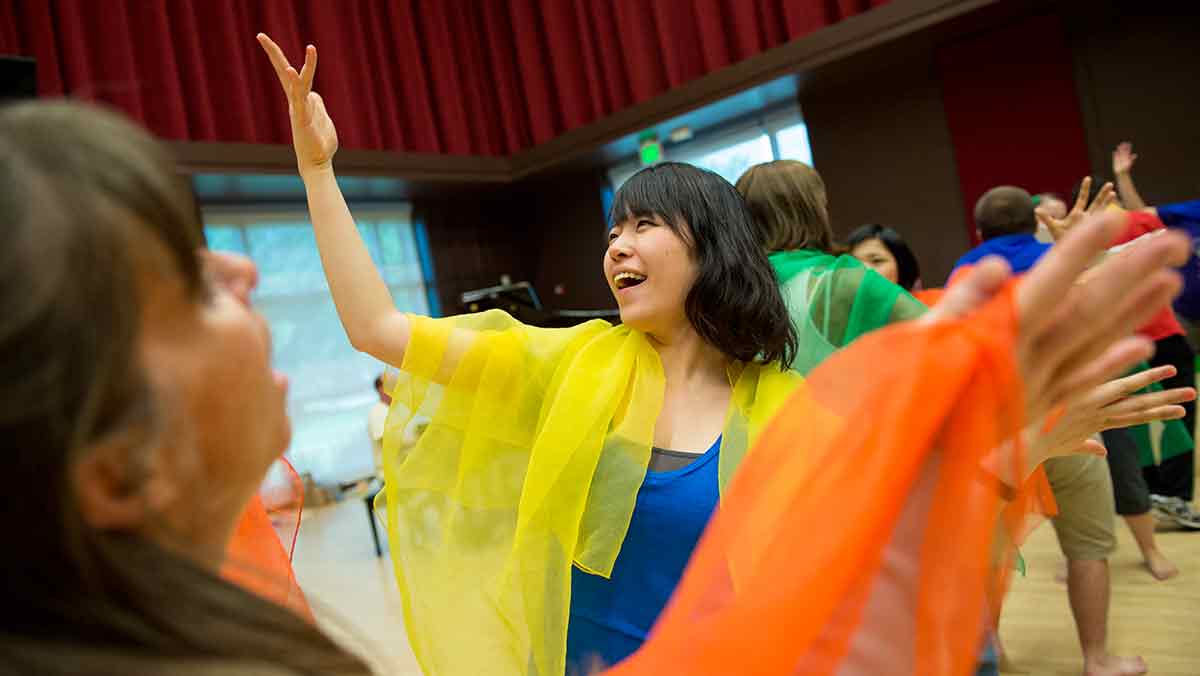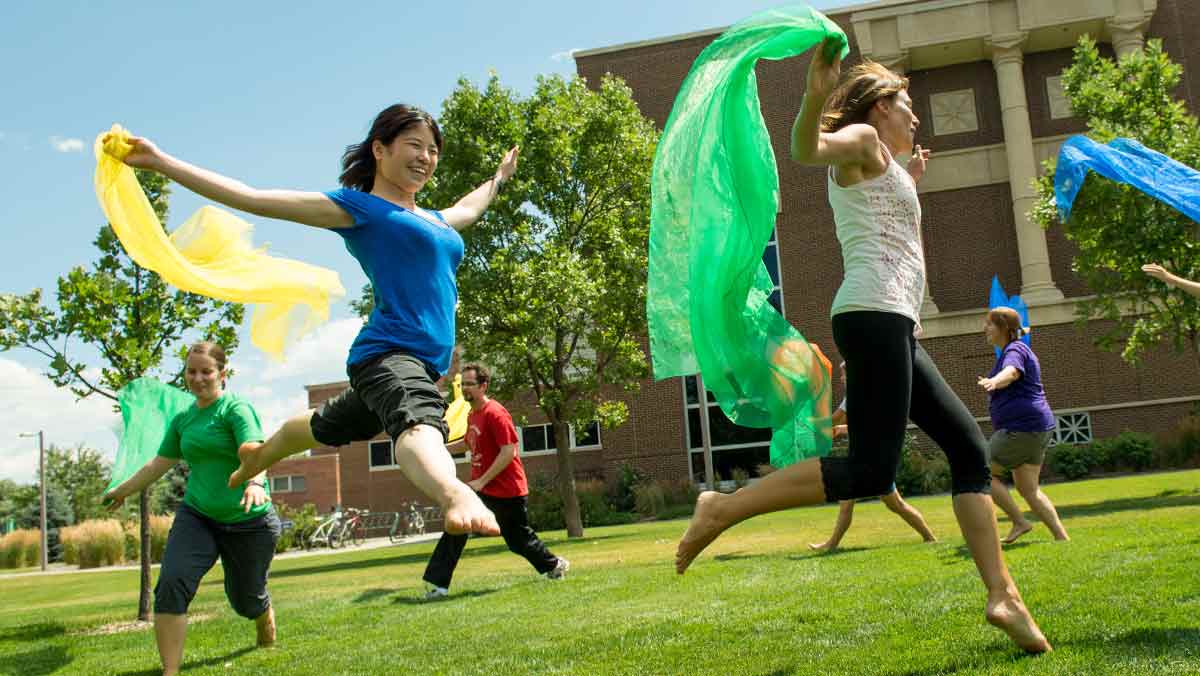


Select one of the options below:

Capture the pulse of modern music pedagogy and discover how to bring your classroom to life with a sense of play. This progressive, student-centered course — affiliated with, and based on, the American Eurhythmics Society (AES) curriculum — gives you the skills to infuse your practice with dynamic, purposeful education.
While a variety of perspectives on this method of music education are presented, a focus is given to the following areas to unlock creativity, nurture imagination, and open doors to enriched musical experiences:
The mission and vision of this course is to support music educators who teach in schools where all students have access to music education. This training is designed for:
Additionally:
Course content is specifically geared to challenges faced by classroom music teachers, among them:
This eurhythmics training course is delivered in the inspiring setting of the Rocky Mountain foothills, on campus at Colorado State University in Fort Collins, Colorado. Here students have access to state-of-the-art facilities for music and movement, including:
This course prepares you to earn your certification through the American Eurhythmics Society. Many students choose to pursue certification to help advance their music education careers and to potentially receive salary benefits. Course faculty are Master Teaching Artists, which makes our training program one of the strongest in the country, and enables students to test on site for their Eurhythmics Certificate. Learn more at the AES website.
Meal and lodging coordination is available for those travelling, a service not available through many other programs.
You have the option of completing this program for personal enrichment by taking the noncredit option, or to enroll in the academic three-credit course to receive transcript credit for the eurhythmics course.
Review Continuing Education FAQ's here.
The Eurhythmics training at CSU features a low student-teacher ratio and a curriculum that focuses on the following:
You have the option of completing this program for personal enrichment, or to enroll in the academic three-credit course to receive transcript credit for the eurhythmics course.

Dr. Bonnie Jacobi is a classically-trained dancer and former member of the Austin Contemporary Ballet. Her training began at the New Jersey Dance Theatre Guild, Princeton Ballet, and Dokoudovsky New York Conservatory of Dance, where she studied the Cecchetti, Vaganova, and Preobrajenska methods. Additionally, she was trained in tap by two Radio City Music Hall "Rockettes."
Jacobi performed in the Five College Dance Ensemble (a consortium between MHC, Smith College, Amherst College, Hampshire College, the University of Massachusetts), including dancing Balanchine's "Orpheus" Pas de Deux with her professor for Humanities classes in all five colleges. Jacobi studied ballet for more than 35 years in advanced adult programs at schools of the Boston Ballet, Houston Ballet, Houston Repertory Ballet, Ballet Florida, Boca Ballet Theatre, and Boulder Ballet. In addition, she has taught ballet, pointe, and tap to children ages 5-18 in New Jersey and Texas, choreographing works for onstage recital performances and regional dance competitions. In Austin, she founded a liturgical dance troupe for children which toured area churches. Jacobi has also served as a professional piano accompanist for the Princeton Ballet (now American Repertory Ballet), as well as Ballet Austin.
She has trained at the Dalcroze School of the Rockies, Carnegie Mellon's International Dalcroze Institute, and the Abramson-Dalcroze Institute at the Juilliard School in New York City. In addition to her active role as a Dalcroze Eurhythmics clinician, Dr. Jacobi has published multiple articles on the history of Dalcroze Eurhythmics instruction in the United States, as well as a doctoral dissertation on musical gesture.

This summer eurhythmics training is delivered in the inspiring setting of the Rocky Mountain foothills, on campus at Colorado State University in Fort Collins, Colorado. Here, students have access to state-of-the-art facilities for music and movement, including:
The CSU Summer Eurhythmics training also offers meal and lodging coordination for those traveling, a service not available through many other programs.
Course content is specifically geared to challenges faced by classroom music teachers, among them: